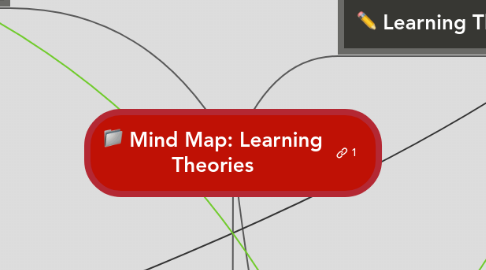
1. Technology Learning Theories
1.1. SCOT
1.1.1. Definition: a theory within the field of Science and Technology Studies. SCOT is a response to technological determinism and is sometimes known as technological constructivism.
1.1.2. Basic Principles;
1.1.2.1. Interpretive flexibility
1.1.2.2. Principle of symmetry
1.1.2.3. Rrelevant social groups
1.1.2.4. Stabilization
1.2. Media Ecology
1.2.1. Definition: The study of media environments - technology and techniques.
1.2.2. Basic Principles:
1.2.2.1. Promote, sustain, and recognize excellence in media ecology scholarship, research, criticism, application, and artistic practice
1.2.2.2. Provide opportunities for professional growth and development
1.2.2.3. Provide a forum for student participation in an academic and professional environment
1.2.2.4. Provide a network for fellowship, contacts, and professional opportunities
2. TPACK
2.1. Adresses 3 types of teacher knowledge:
2.1.1. Technology
2.1.2. Pedagogy
2.1.3. Content
2.2. A reflective framework for teachers for the PURPOSEFUL use of technology in the classroom
2.3. Technology is incorporated and plays a role in influencing both content and pedagogy and vice versa.
3. Learning Theories
3.1. Cognitive Load
3.1.1. Key theorists: Piaget, Gagne, Vygotsky, Bruner
3.1.2. Definition: an information processing theory used to explain the limits of working memory based on current knowledge of human cognitive architecture (concept of our minds having structures such as working memory, long term memory, and schemas.)
3.1.3. Basic Principles:
3.1.3.1. Overload occurs when Working Memory has to process too much too fast.
3.1.3.2. Schemas are memory structures written in Long Term Memory by Working Memory.
3.1.3.3. Working Memory is overloaded when its ability to build a schema is compromised.
3.1.3.4. If Working Memory has capacity left over, it can access information from long term memory in powerful ways.
3.1.4. Educational Implications:
3.1.4.1. Teachers will need to limit the information they deliver on one subject.
3.2. Constructivism
3.2.1. Key theorists:
3.2.2. Definition: a theory of learning and an approach to education that lays emphasis on the ways that people create meaning of the world through a series of individual constructs.
3.2.3. Basic Principles:
3.2.3.1. Emphasize student-centred instruction
3.2.3.2. Nurture reflexivity
3.2.3.3. Support multiple perspectives and the use of multiple modes of representation
3.2.3.4. Providing for social negotiation as an integral part of learning
3.2.3.5. Provision of complex learning environments that incorporate authentic activity
3.2.4. Educational Implications
3.2.4.1. The teacher in more a facilitator, encouraging self-learning but not in a typical lecture environment.
3.3. Connectivism
3.3.1. Key theorists:
3.3.2. Definition: a theory of learning based on the premise that knowledge exists in the world rather than in the head of an individual.
3.3.3. Basic Principles:
3.3.3.1. Learning and knowledge rests in diversity of opinions
3.3.3.2. Learning is a process of connecting specialized nodes or information sources.
3.3.3.3. Capacity to know more is more critical than what is currently known
3.3.3.4. Nurturing and maintaining connections is needed to facilitate continual learning
3.3.3.5. Choosing what to learn and the meaning of incoming information is seen through the lens of a shifting reality
3.3.4. Educational Implications:
3.3.4.1. The teacher is more an overseer. It will be the job of the teacher to provide activities and lessons and point the child to finding the information and gaining knowledge.
